GARY
BUCCIARELLI
Ecologist
Evolutionary Biologist
MACROINVERTEBRATE ECOLOGY
Macroinvertebrate foraging behavior in response to chemical cues and amphibian defense toxins
This work centered around my interest in learning whether chemical defense compounds from toxic California newts (Taricha torosa) have any ecological effects upon the aquatic community. The toxin newts have, tetrodotoxin (TTX) will elicit antipredator behavior in conspecific larvae because adults can be cannibalistic, but what effect TTX may have upon lower trophic levels, such as the macroinvertebrate community was not clear. Using field bioassays, I found that newt chemical cues affected macroinvertebrate foraging behavior. Using TTX in the laboratory, I found that predatory nymphs exposed to TTX reduced their mean angular velocities 4 fold and strike velocities 3 fold relative to controls.
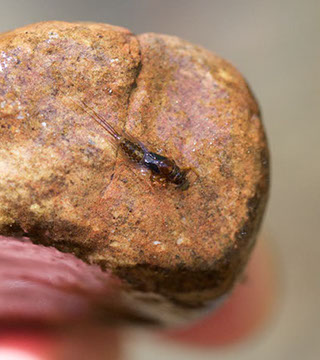
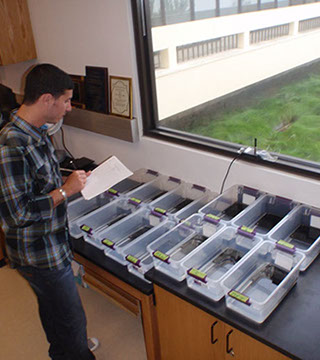
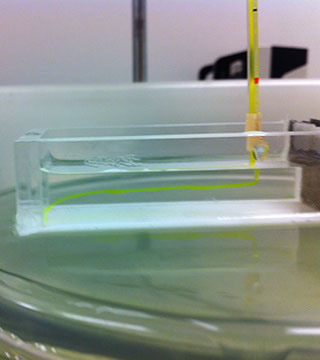
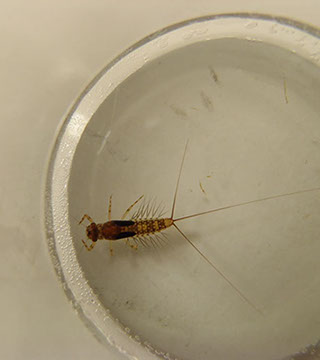
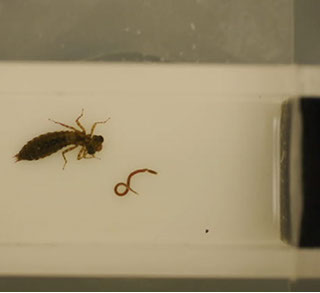
Mayflies
Ephemeropterans are one of the species that compose the macroinvertebrate community. They live in streams as aquatic nymphs before hatching out of the water as a flying insect.
Feeding experiments
Conducting a preliminary feeding experiment with dragonfly nymphs and newt larvae.
Experimental flow-through chambers
I used these small experimental chambers to test how dragonfly nymphs would respond to waterborne chemical cues. I've just introduced fluorescein dye to determine flow dynamics.
Mayflies in the laboratory
I fabricated these small mesocosms for experimental bioassays with macroinvertebrates to test dose responses to waterborne TTX.
Experimental still
A dragonfly nymph in one of the experimental chambers. The nymph was exposed to waterborne TTX or a control prior to the prey being introduced. I recorded the trial, then analyzed velocities from the video.